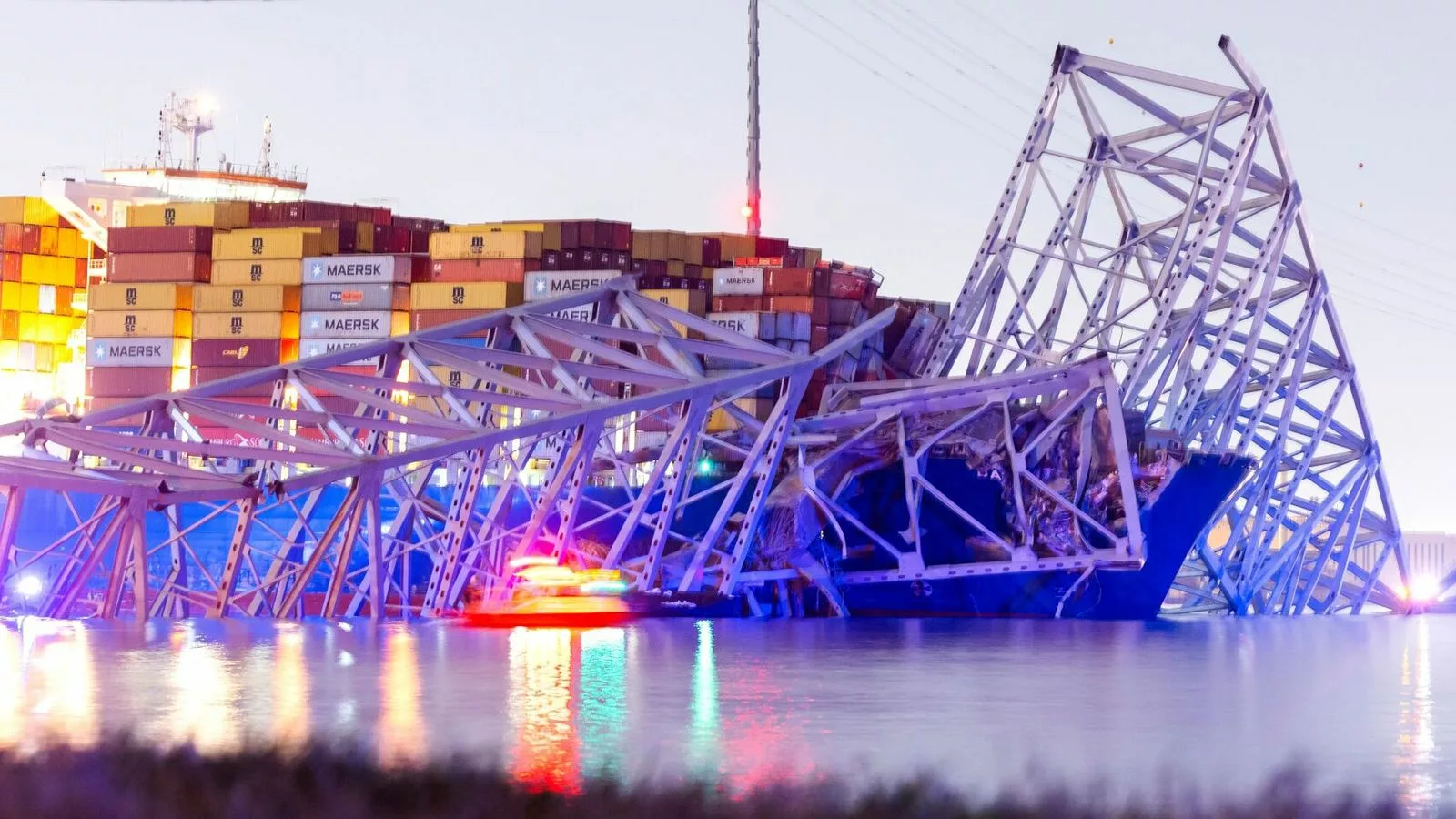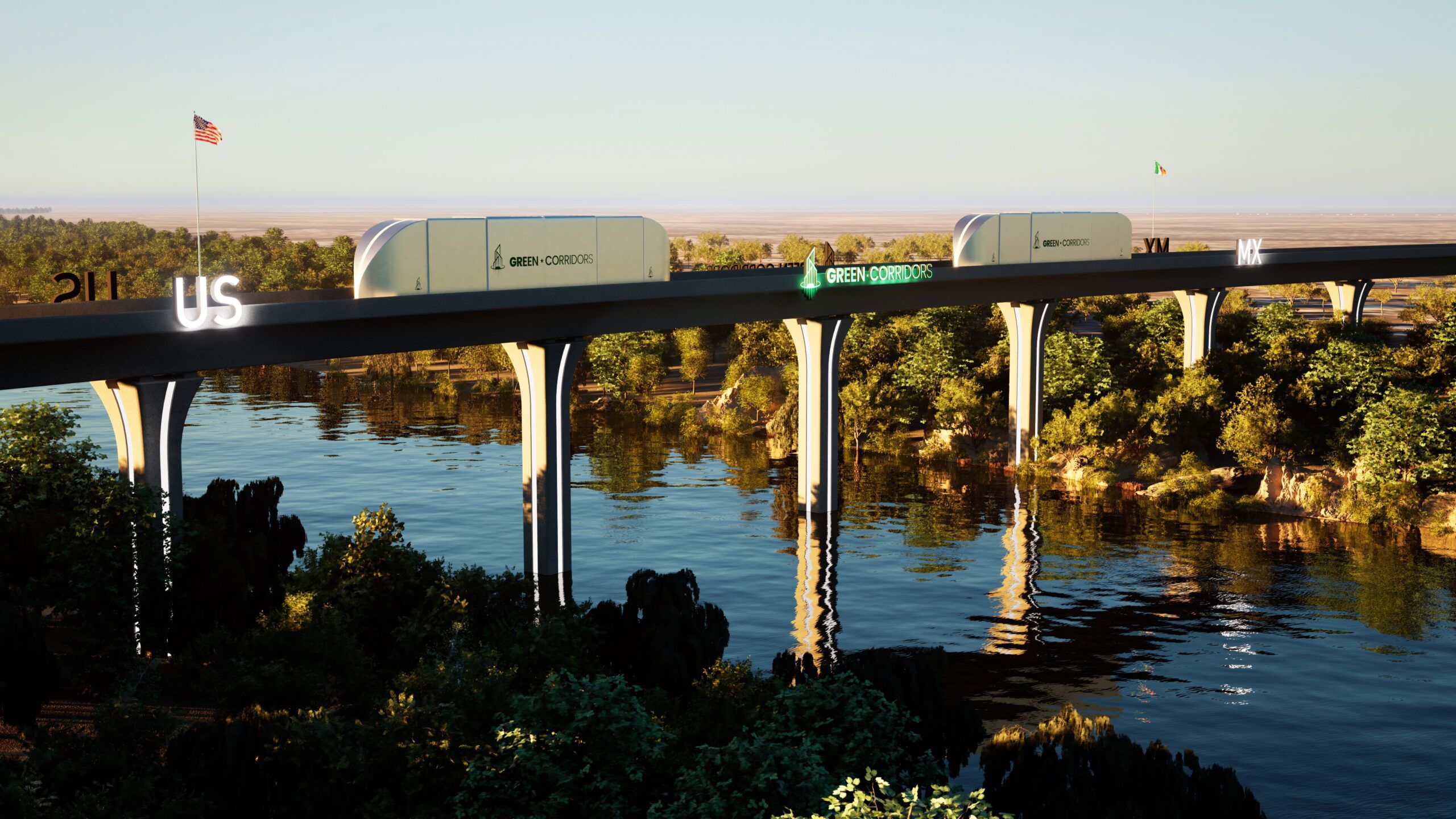Impact of the Francis Scott Key Bridge Collapse on our National Supply Chain

The collapse of the Francis Scott Key Bridge, a critical transportation artery in Baltimore, has sent shockwaves through the city and the broader region. The incident, triggered by a container ship collision, has not only resulted in tragic human losses but has also disrupted one of the United States’ key maritime gateways, the Port of Baltimore.
Situated strategically on the East Coast, the Port of Baltimore is a vital link in the nation’s supply chain. It serves as a bustling hub for container shipping, handling billions of dollars’ worth of cargo annually. The port’s deep harbor can accommodate large vessels, making it an attractive entry and exit point for goods destined for markets across the Midwest and along the Eastern Seaboard.
The impact of the bridge collapse on the port’s operations has been immediate and far-reaching. The closure of the shipping lane has halted container shipping services, creating a backlog of vessels and disrupting the flow of goods. This disruption has reverberated across various industries that rely on the port for their supply chain needs.
One of the most affected sectors is the automobile market. The Port of Baltimore handles a significant volume of automobile imports and exports, serving as a key gateway for vehicles and automotive parts. The closure of the port has disrupted the transportation of vehicles, impacting manufacturers, dealerships, and consumers alike.
Furthermore, the closure has ripple effects on trucking and rail transport. With container cargo rerouted to other ports, trucking companies face longer routes and increased transportation costs. Railroads that rely on the port for cargo transfers also experience disruptions, leading to delays and logistical challenges.
Economists have raised concerns about the economic ramifications of the port’s closure. The loss of jobs and revenue in maritime-related industries is expected to have a cascading effect on the region’s economy. The Port of Baltimore is not just a transportation hub but a major employer, supporting thousands of direct and indirect jobs in shipping, logistics, warehousing, and related sectors.
Efforts are underway to assess the damage, recover the debris, and reopen the port as soon as possible. However, the timeline for restoring full operations remains uncertain, prolonging the economic challenges faced by Baltimore and Maryland. Businesses, government agencies, and stakeholders are collaborating to mitigate the impact and find alternative solutions to keep the supply chain moving.
In the meantime, the bridge collapse serves as a stark reminder of the interconnectedness of infrastructure, transportation, and economic prosperity. It underscores the importance of resilient infrastructure and contingency planning to navigate unforeseen disruptions in the supply chain. As the recovery efforts continue, stakeholders are focused on restoring the Port of Baltimore to its pivotal role in facilitating trade, commerce, and job creation in the region and beyond.
Importance of the Port of Baltimore to the United States Supply Chain
The Port of Baltimore plays a significant role in the United States’ supply chain for several reasons:
- Strategic Location: Situated on the East Coast, the Port of Baltimore serves as a vital gateway for goods entering and leaving the United States. Its location allows for efficient transportation of goods to major markets in the Midwest and along the East Coast.
- Deep Harbor: The port’s deep harbor can accommodate large cargo vessels, including container ships, bulk carriers, and oil tankers. This capability enables the handling of a wide range of goods, from consumer products to raw materials and energy resources.
- Diverse Cargo Handling: The port handles a diverse range of cargo, including containerized cargo, automobiles, heavy machinery, agricultural products, and petroleum products. This diversity makes it a versatile hub for various industries and trade sectors.
- Efficient Infrastructure: The port is equipped with modern terminals, efficient cargo-handling equipment, and well-connected transportation networks. These infrastructure investments enhance the port’s capacity and operational efficiency, contributing to smoother supply chain operations.
- Trade Connectivity: The Port of Baltimore has strong trade connections with international markets, serving as a key entry point for imports and an export hub for U.S. goods. Its connectivity to global shipping routes facilitates trade flows and economic activity.
- Employment and Economic Impact: The port supports thousands of direct and indirect jobs in maritime-related industries such as shipping, logistics, warehousing, and transportation. Its economic impact extends beyond the local region, benefiting businesses and communities nationwide.
Overall, the Port of Baltimore’s strategic location, infrastructure capabilities, cargo handling diversity, trade connectivity, and economic contributions make it a crucial component of the United States’ supply chain network.
We Know The Industry
With over 20+ years in the trucking insurance industry Cook Insurance Group combines national reach with local service to address the needs of large fleet, small fleet, single owner and tow trucking operations, and to charter bus lines. We ONLY serve the Trucking industry, providing the best trucking insurance. Let our friendly, bi-lingual staff help you find the right insurance protection at the right cost.
Cook Insurance Group is dedicated to meeting the needs of both small and large fleet trucking companies. Our reps handle every aspect of your program, ensuring you have the best trucking insurance plan for your specific needs. We work closely with you to manage your plan on an ongoing basis.
At Cook Insurance Group, we provide immediate certificate and ID card insurance, including 24/7 certificate availability. We leverage our client portal which allows you to access and issue certificates, check claim status and view policies. Cook Insurance Group is prompt and reliable, including 24-hr claims reporting. (Physical Damage and Motor Truck Cargo). We also provide educational seminars for management and drivers of companies.
At Cook Insurance Group we have licensed risk managers available to assist you with CSA scores and driver training. We provide border risk coverage (NAFTA) and mid-year loss run reviews.
Choose Cook Insurance Group for all of your trucking insurance needs whether you are located in Texas, Arizona or Arkansas.



